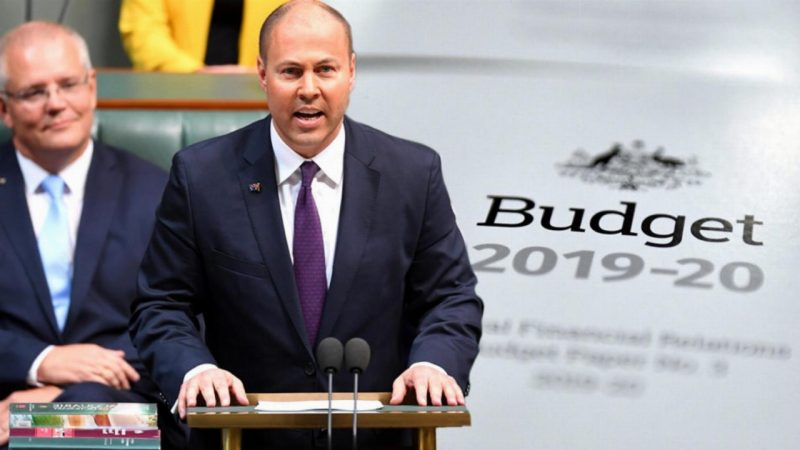- Federal Treasurer Josh Frydenberg revealed the biggest budget deficit since World War II as the government fights to keep the Australian economy healthy
- Australia’s deficit is expected to hit nearly $185 billion by the end of this financial year, taking the national debt as high as $850 billion
- Unemployment is expected to peak at 9.25 per cent by Christmas this year before flattening and gradually declining
- Looking at the JobSeeker and JobKeeper support programs, both will be extended but scaled down
- JobSeeker payments to workers and JobKeeper payments to employers will be slashed by $300 in late September
- As it stands, both programs are being extended until the end of December
- The Treasurer said budget predictions are working on the assumption that the international travel ban will be lifted at the start of 2021, but this is not guaranteed
Federal Treasurer Josh Frydenberg has revealed the biggest budget deficit since World War II as the government desperately throws money into the economy to mitigate the effect of the COVID-19 pandemic.
Australia’s deficit is expected to hit $184.5 billion by the end of this financial year, taking national debt as high as $850 billion. For the 2020 financial year, the deficit is sitting at $85.8 billion, or 4.3 per cent of gross domestic product (GDP).
The Treasurer said unemployment is expected to peak at 9.25 per cent by Christmas this year. The unemployment rate should flatten from here, the Treasurer said, but he admitted it could take some time to start to decline.
It’s important to note that this afternoon’s press conference was not the announcement of the new Federal Government budget, but rather a mini-budget update as COVID-19 continues to spread across Victoria and lockdown fears are on the rise for New South Wales.
The 2021 Federal Budget will be announced on October 6 this year. As part of the October budget, Treasurer Frydenberg said the government would look at raising the current federal borrowing limit.
This follows the advice of the Reserve Bank of Australia, which said yesterday that government borrowing will be a catalyst to mending the economic scars left behind by the COVID-19 pandemic.
Finance Minister Mathias Cormann did his best to bring some comfort and perspective to the bleak economic numbers today, saying that Australia is outperforming nearly every other country in the world in both virus containment and economic management — even with the recent Victorian outbreak.
“We are in a better, stronger, more resilient position than most other countries around the world,” the Minister said.
JobSeeker, JobKeeper, and travel
Perhaps the most anticipated point in today’s address from the Treasurer was the looming changes to the JobSeeker and JobKeeper support programs.
The changes were flagged earlier this week by the Treasurer and Prime Minister Scott Morrison, and today it was confirmed that both programs will be extended but slightly scaled down.
The Coronavirus Supplement to the JobSeeker program will be extended to the end of the year, but from September 25 will be cut from $550 per fortnight to $250 — meaning the total payment for a single full-time worker will be just over $800 per fortnight.
As for the JobKeeper program, employer payments will drop from $1500 per full-time worker to $1200 per full-time worker from September 27. The program will then be gradually scaled down over the following six months.
Meanwhile, the future of Australia’s borders is still up in the air as the Treasurer confirmed no decision had been made yet regarding the lifting of our international travel ban.
This is despite the government’s budget forecasts assuming international borders will be open from the start of 2021 with a mandatory two-week quarantine period required for overseas travellers.
The Treasurer and Finance Minister stressed that as it stands, any predictions are certainly not definitive given the ongoing uncertainty surrounding the pandemic.

